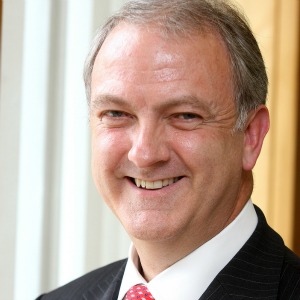The reality is that by focusing on general practice and primary care we bring benefits to our patients, and that is the end game in all of this. Our GPs are dealing with an increase in complex patients, their demands are going up [at] all sorts of levels and they are functioning in a very different societal environment to a decade ago, or two decades ago.
The best way of looking after our patients in the community, is by looking after our general practitioners
And so, general practice has changed, and it seems to me that one of the real challenges we have is that the art and science of medicine come together in a combined endeavour in general practice. Not just to treat individual diseases but also to treat the families who are affected by those diseases, and the communities in which those diseases occur.And we are increasingly asking general practitioners also to become engaged in the prevention agenda, which is clearly very important.
And in real life it seems to me that they have to be on constant alert for minor ailments that are masquerading as pretty serious diseases and there is a changing set of expectations that they don’t miss those diseases. So the end result is that general practice is clinically, intellectually and emotionally demanding. It is emotionally demanding in part because of the clinical environment, and also in part because of the bureaucratic environment in which they have to function. So there is nothing kind of general about general practice.
And as patients have been moved out of hospital to be treated in the community, we have seen a commensurate requirement for the professionalism of general practitioners who have increasingly become the general physicians, the consultant community physicians of the day. And that is a very important change in my view. And yet at the same time, I think there is evidence that our general practitioners have been undervalued by the NHS at the time when we need them most. When we are asking for them to do more.
Their income has dropped very significantly in real terms since 2005/06. During a similar period the number of consultations, of increasingly complex patients, has gone up by 14% and there are a set of expectations which have accompanied that. Expectations which GPs have imposed on themselves to ensure that they provide the best quality clinical care that they can, but also a set of expectations which come from patients and those that oversee the NHS. Equally, as has been pointed out in the GP Forward View, during a similar time we have seen levels of investment down by 0.8% annually in general practice whilst it has risen in hospitals by 12.3%, and there seems to be an inequity in that.
Much of this becomes reflected in the longitudinal work life survey. We know that morale in general practice is the lowest that it has been since 2001 and then when you start to dissect that out you see that it is due to a feeling of excessive workload, unresourced work that has been moved out of hospitals into general practice, not enough time with patients – which is really important if we are going to engage in the sort of relationships that you need to deliver the kind of care I have described – and the weight of regulation.
And this is also reflected if you look at the proportion of people who are leaving general practice early, retiring early. It is up 10% for the ages between 55 and 65 between 2004 and 2014. And that is a combination of the dissatisfaction with the working environment and complicated further by pension considerations. And on top of that it has made it more difficult to recruit people into general practice. So despite all of this it is worth noting that the general practice outcomes standards have improved over the last year in 30% of practices.
So we can’t afford to keep on losing our general practitioners and we can’t afford to have a disenchanted general practitioner workforce. And that is what the Five Year Forward View is about. And that is what the endeavours that Arvind has outlined are about. And the reality is that the best way of looking after our patients in the community, is by looking after our general practitioners and our primary care. And that is true both for our current patients and for our future patients.

















